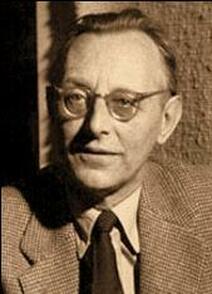
Orff Schulwerk is an approach to music teaching and learning, combined with and supported by movement, based on things children like to do: sing, chant rhymes, clap, dance, and keep a beat or play a rhythm on anything near at hand. These natural behaviors are directed first into responding to and making music; reading and writing music are a later natural outgrowth of these experiences. Composer Carl Orff, originator of the approach, called this music and movement activity “elemental” – basic, unsophisticated, concerned with the fundamental building blocks of both art forms.
The purpose is to provide a means for awakening the potential in every child for being “musical” – able to understand and use music and movement as forms of expression. The further intent is to develop a foundation for lifelong enjoyment of music and movement/dance, and for some, the incentive for specialized individual study.
Music/movement educators trained in the Orff approach function both as instructors and facilitators, guiding students through several phases of development:
In sum, Orff Schulwerk as a music pedagogy offers complementary support to learning in all areas, joining the efforts of music teachers in the commitment to the intellectual and personal growth of all students.
For more information about Orff Schulwerk in Education, view the What is Orff Schulwerk? Brochure. The description of the Schulwerk that appears on this page is taken from a document published by AOSA titled AOSA Fact Sheet: What is Orff Schulwerk? Click here to read this document in its entirety.
The purpose is to provide a means for awakening the potential in every child for being “musical” – able to understand and use music and movement as forms of expression. The further intent is to develop a foundation for lifelong enjoyment of music and movement/dance, and for some, the incentive for specialized individual study.
Music/movement educators trained in the Orff approach function both as instructors and facilitators, guiding students through several phases of development:
- Exploration – discovering the possibilities inherent in movement, speech, singing and the various instrumental resources;
- Imitation – developing the ability to repeat specific patterns, which can then be used as vocabulary for improvisation and later for original composition;
- Improvisation – using known material in spontaneous performance of individual new music and movement ideas;
- Composition – developing material, through the previous three phases, that can be remembered, repeated, and often also written down. (Music literacy is definitely considered important in Orff Schulwerk, but not fundamental to being a “musical” person.)
In sum, Orff Schulwerk as a music pedagogy offers complementary support to learning in all areas, joining the efforts of music teachers in the commitment to the intellectual and personal growth of all students.
For more information about Orff Schulwerk in Education, view the What is Orff Schulwerk? Brochure. The description of the Schulwerk that appears on this page is taken from a document published by AOSA titled AOSA Fact Sheet: What is Orff Schulwerk? Click here to read this document in its entirety.
|
|
|